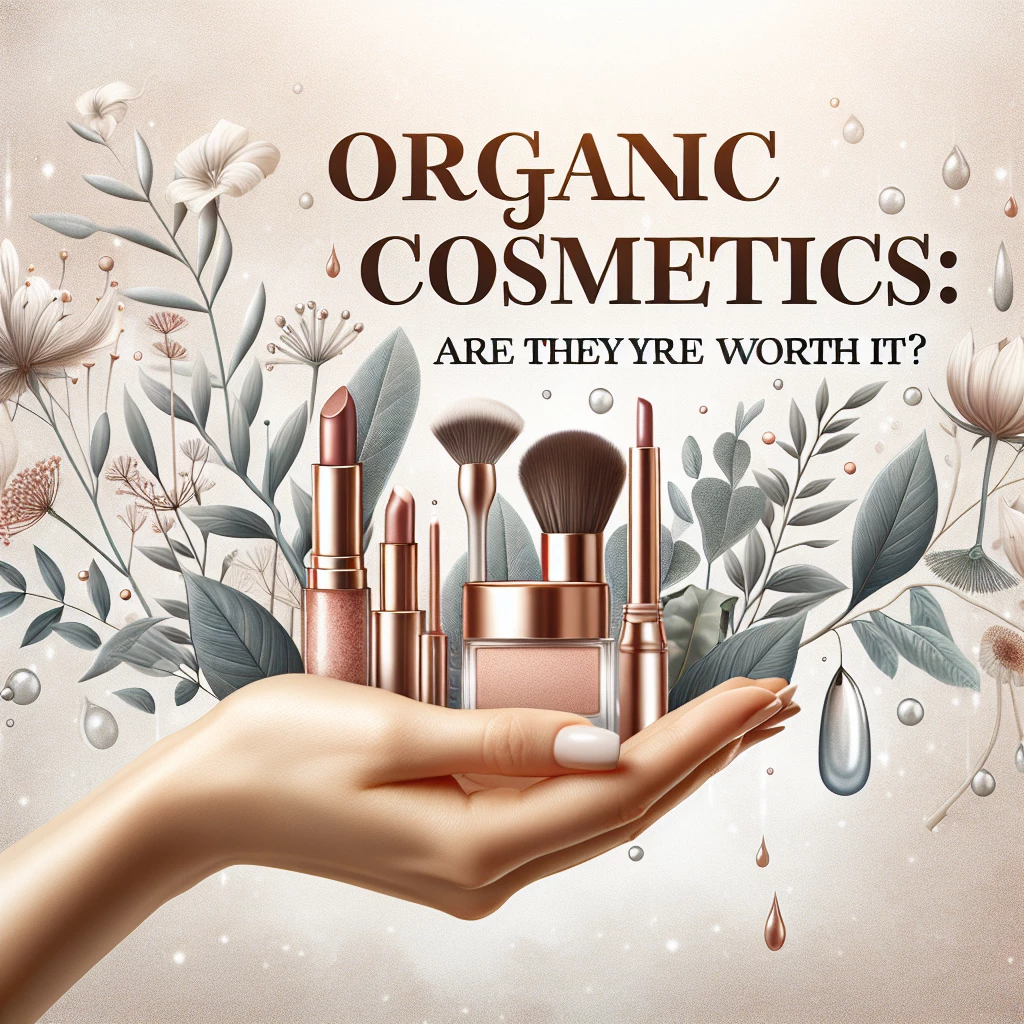As environmentally friendly products gain more prominence, there has been a surge in interest in organic cosmetics. Are they worth the hype? In this article, we will delve into the world of organic makeup, exploring its pros and cons, examining its ingredients, and evaluating whether they deliver a superior performance compared to their non-organic counterparts. Join us as we unravel the truth behind organic cosmetics and whether they warrant the often-higher price tag.
What Does Organic Mean?
Before we delve deeper, let's understand what 'organic' means. Organic refers to the way agricultural products are processed and grown. For a product to be considered organic, it must meet specific standards such as being produced without the use of synthetic fertilizers, pesticides, and genetically modified organisms.
In the realm of cosmetics, ‘organic’ implies that the product has been manufactured using ingredients that have been organically farmed. However, it’s important to scrutinize certification labels as definitions of 'organic' may vary depending on brand and country.
Unfortunately, the cosmetics industry is not as regulated as the food industry when it comes to organic labeling. Therefore, some brands may use the term 'organic' liberally, potentially misleading consumers. Always verify any 'organic' claims with reputable certification bodies.
Pros of Organic Cosmetics
Organic cosmetics tend to be free from synthetic colors and fragrances, parabens, and other potentially harmful chemicals. As such, they are often recommended for sensitive skin types, which are more prone to irritation.
Another advantage of organic cosmetics is their environmental impact. As they are made from organically grown ingredients, they contribute less to water and soil contamination.
Moreover, organic cosmetics often come with sustainable packaging made of recycled or recyclable materials, further enabling you to reduce your environmental footprint.
Cons of Organic Cosmetics
One of the primary downsides of organic cosmetics is their cost. Due to the high cost of organic farming and stringent certification processes, organic cosmetics tend to be more expensive than their non-organic counterparts.
Another potential disadvantage is their shorter shelf-life. As organic cosmetics lack synthetic preservatives, they can spoil more rapidly. Thus, you'll need to use them up quickly, which may increase the overall cost.
Lastly, while organic cosmetics are marketed as 'safer', it doesn't equate to 'risk-free'. Some people might still react to natural ingredients, depending on individual sensitivities.
Organic Cosmetics vs. Non-Organic Cosmetics
From a performance standpoint, it’s tough to generalize whether organic cosmetics are superior. As with any cosmetic product, effectiveness varies greatly from brand to brand, and product to product.
One crucial aspect to note is that even though a product is labeled as organic, it may not necessarily be 100% organic. A product can be marketed as organic even if only a percentage of the ingredients are organically sourced.
Therefore, the best way to decide between organic and non-organic cosmetics is to try out various products and find out what works best for your skin. Always pay attention to ingredient lists and avoid anything known to be potentially harmful.
In conclusion, whether organic cosmetics are worth the investment or not depends largely on individual preference, values, and budget. If you embrace environmentally friendly products, value transparent and clean ingredients, and don't mind spending extra, you may find organic cosmetics a beneficial addition to your beauty routine. Regardless of your choice, remember to appreciate makeup as a mode of self-expression and have fun with it.

In-depth Dive into Nail Art
Get inspired by the latest trends in nail art and learn about the essential products for the same.

Glitter Makeup: Dazzle with Grace
Understand the do's and don'ts of glitter makeup and unveil the products that can help you sparkle.

Contouring 101: A Beginner's Guide
Comprehend the art of contouring and explore the best products to achieve that perfect sculpted look.

Decoding the Function of Primers
An overview of the uses, benefits, and the must-have primers for your daily beauty regime.
